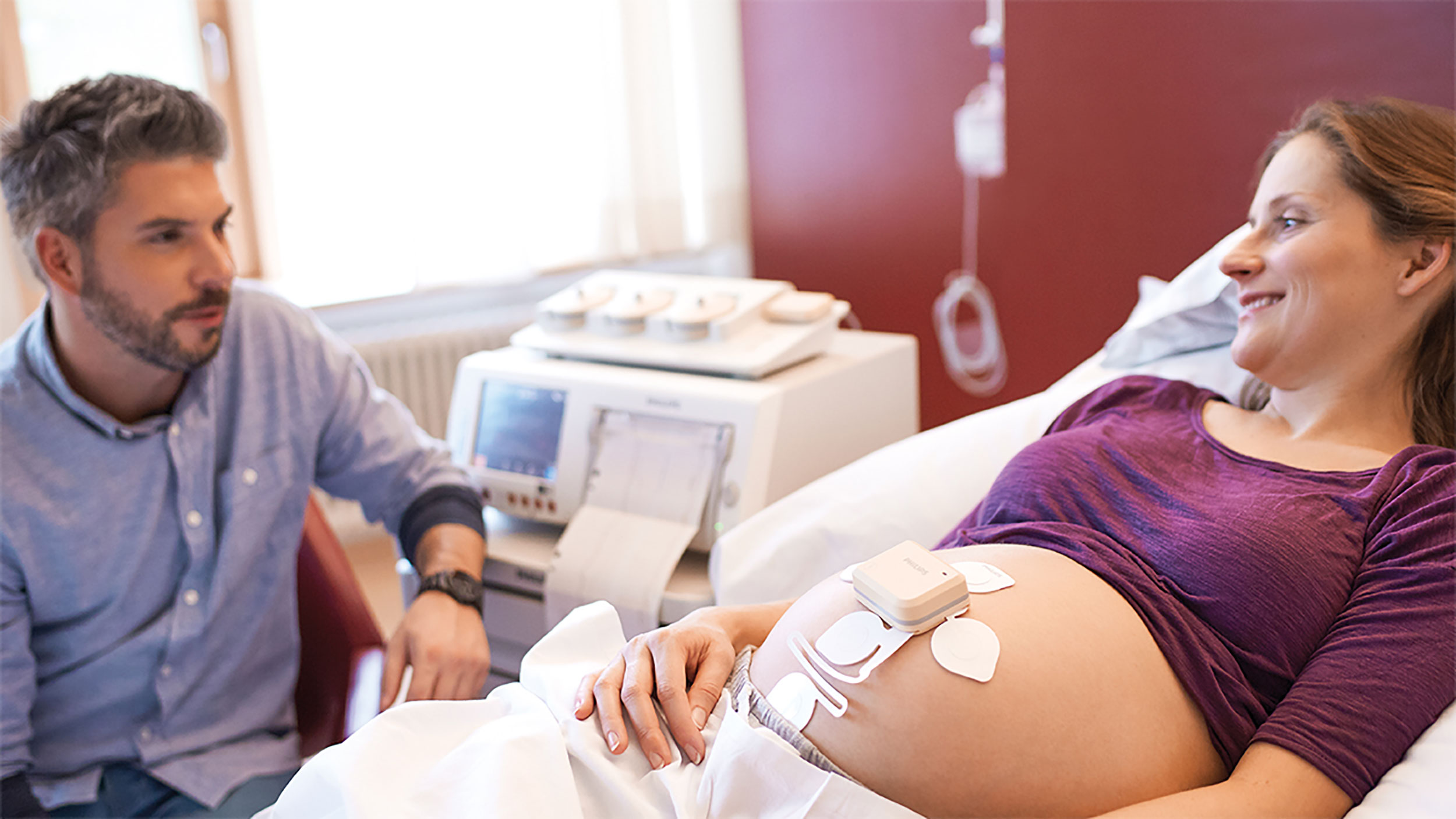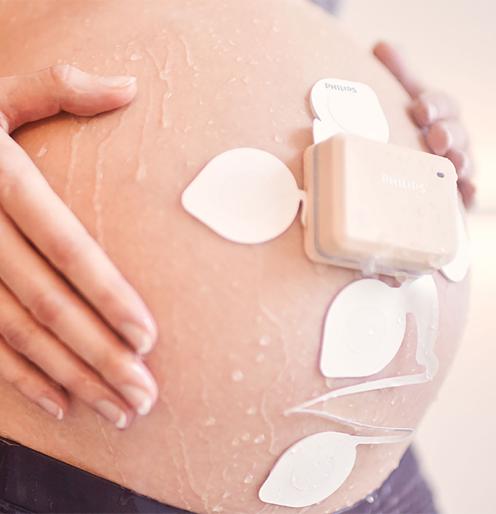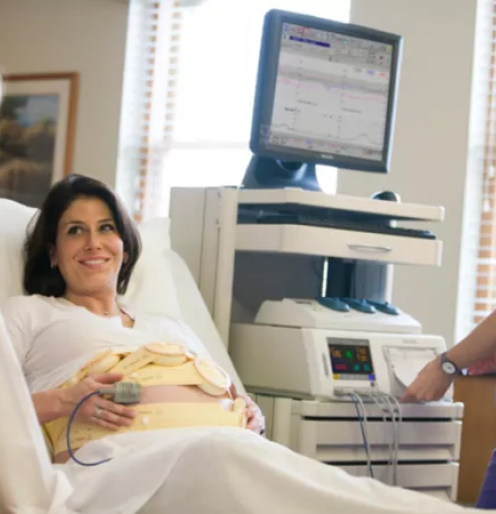
Accessible healthcare for all
From small rural hospitals to large academic medical centers, there is a clear need for health systems to integrate tools that will help them optimize resources and take care of as much of the patient population as possible.
Intensive Care
The Philips eICU program is a tele-ICU program that combines audiovisual technology, predictive analytics, data visualization and advanced reporting capabilities. It is a scalable, centralized solution that extends critical care resources to the bedside via technology, independent of the health facility’s location.
This centralized (hub and spoke) model puts an intensivist-led team in a central monitoring facility where they can be responsible for 50–500 remote ICU beds. It is not a replacement for the bedside team, but rather a support system to continuously advance the established plan of care.
Mobile Obstetrics Monitoring: safe monitoring from a distance
Last year Philips partnered with Bunda Medical Center in Padang, West Sumatra to address problems during antenatal care using the Philips Mobile Obstetrics Monitoring (MOM) solution. This partnership was a collaboration between Bundamedik, the city government of Padang, the Ministry of Health and Philips Healthcare to address increasing concern with maternal mortality in Indonesia. They developed a scalable telehealth platform that can be adapted to suit specific rural and urban needs, using a mobile phone application.
The app enables midwives to build a relevant health profile of pregnant women by collecting data from physical examinations and tests and local nursing clinics, or even at the soon to-be mother’s home. Data is uploaded from the app onto the central Mobile Obstetrical Monitoring server, allowing obstetricians and gynecologists to remotely monitor patients from hospitals or home. This way, high risk pregnancies are spotted quickly, even in rural areas.
Portable eHealth
Another way to contribute to better health coverage is by putting portable ultrasound imaging in the hands of more professionals, to serve more patients in more locations. With the option of several different lightweight ultrasound probes that connect via USB to a mobile or tablet, the Lumify system suits wide-ranging applications in areas such as emergency medicine, critical care, internal medicine, obstetrics/gynecology, musculoskeletal care and general practice. It will also allow live ultrasound exams to be securely streamed to an approved remote healthcare provider as part of an interactive video-conference session for collaboration.
“Having used the Philips Lumify device, there are a few aspects that stand out,” said Associate Professor Tan Teng Hong, Head and Senior Consultant, Cardiology Service, Department of Paediatric Subspecialties, KK Women's and Children's Hospital, Singapore. “This includes its portability, image quality and usability. Pocket-sized devices such as this can be easily used in a variety of environments, providing immediate feedback, and allow users to receive high quality ultrasound imaging on a compatible smart device without the need for a larger echo machine.”


Experience in Southeast Asia
With multinational experience, Philips has long had partnerships in Southeast Asia. A recent example of this is the agreement with Hong Duc General Hospital in Ho Chi Minh City in Vietnam. They announced a seven-year partnership, starting in 2020, covering a comprehensive turnkey solution for high quality general healthcare services. Philips will provide the newly-built Hong Duc General Hospital II with the latest medical imaging, patient monitoring and healthcare IT solutions. In addition, Philips will deliver comprehensive training programs to strengthen the hospital’s clinical capabilities and design services to optimize workflows and enhance the patient/staff experience, with the aim of delivering better clinical outcomes.
Similarly, in 2020 Philips and the Mandaya Royal Hospital Puri announced a seven-year strategic partnership agreement integrating a comprehensive range of cutting-edge medical technologies and solutions that will bring world-class healthcare services to Mandaya Royal’s patients and staff. The agreement includes first of kind imaging and image-guided therapy technologies for the region, integrated informatics and connected monitoring solutions to support leading clinical care delivery. In 2018, Philips officially opened the Advanced Medicine Imaging (AMI) center at Biopolis, an international biomedical research hub in Singapore. This provides specialized oncology care to the fast-growing number of people confronted with cancer in the Southeast Asia region, as well as oncology research and training.